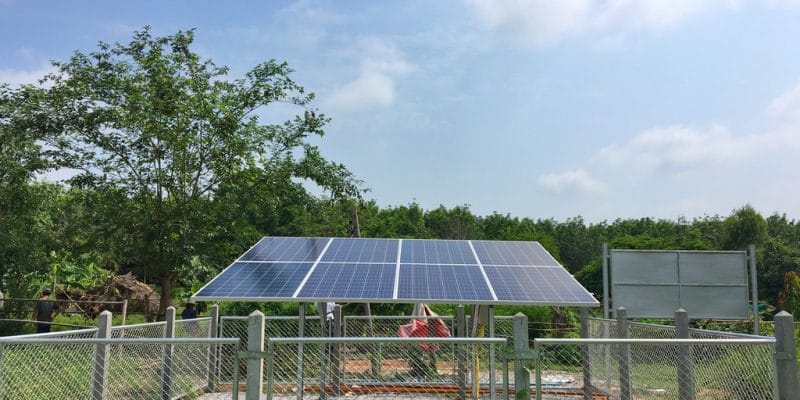The Nigerian Postal Service (Nipost) recently signed an agreement with Ukpa hansa energy for the supply of solar systems in rural areas. The partnership was signed under the auspices of the Federal Government of Nigeria.
Sustainable cities and territories #24. Our series in partnership with the Africa-France 2020 Summit.
A new partnership has emerged for the dissemination of solar systems in rural areas in Nigeria. An agreement has been signed between the Nigerian Postal Service (Nipost) and Ukpa hansa energy, a company based in Dubai, United Arab Emirates. The partnership will accelerate the electrification of rural areas, where the rate of access to electricity is lowest. In 2017, only 41% of rural households in Nigeria had access to electricity.
To improve the situation, the government of Nigeria, like other states in Africa, is relying on off-grid solar systems, which are easy to deploy and less costly for rural households. It is in this context that the alliance between the Nigerian Post Office and Ukpa hansa energy comes into play. As part of this partnership, Nipost will make its post offices available to Ukpa hansa energy for the marketing of its off-grid solar systems in rural areas.
“Nipost has about 5,000 postal outlets consisting of fully fledged post offices, postal agencies and post stores with more than 12,000 employees throughout the country to offer its agency services by providing Ukpa hansa energy with postal outlets throughout the country to market its products to Nigerians,” said Ismail Adewusi, Nipost’s Managing Director.
The partnership between Nigeria Post and Ukpa Hansa Energy Solutions should also serve the ambitions of the Nigerian government. According to the recent Sustainable Energy for All (SE4ALL) report, the current energy policy of the Nigerian government could increase the rate of access to electricity to 75% (urban = 90% and rural = 60%) by 2020 and 90% by 2030. Installed power generation capacity is expected to increase from 7,500 MW in 2015 to 115,000 MW by 2030. Energy efficiency is expected to increase by at least 20% by 2020 and 50% by 2030.
Jean Marie Takouleu






